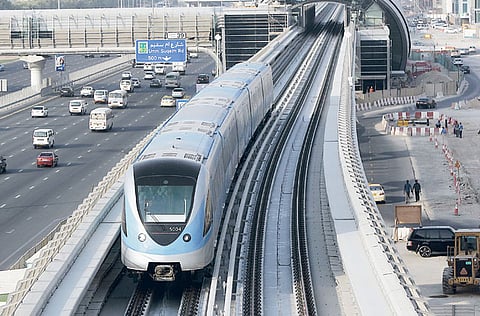French firm to work on Dubai Metro extension
Fortune 500 firm selected to install signalling systems for 15-kilometre extension that will link to Expo 2020 site

Dubai: A French multinational company has been chosen to work on the extension of Dubai Metro’s red line, signalling that the project is on track for delivery before the end of 2020.
The 15-kilometre extension, also known as Route 2020, will include seven stations and connect the existing network with the World Expo site.
Headquartered in Paris, France, Thales Group has been selected by Alstom, which leads the consortium tasked to deliver the project, and Dubai’s Road and Transport Authority (RTA) to equip the extension with signalling systems.
“Thales will provide a state-of-the-art driverless train signalling technology as well as integrated supervision, telecommunications, passengers’ services, security and fare collection systems. These innovative solutions are designed to optimise energy consumption, smooth passenger flows and improve IT connectivity,” the company said in a statement.
Thales is a Fortune 500 Global company that designs and builds electrical systems and has operations in more than 50 countries.
The consortium for the Dubai Metro project has signed a contract with the RTA to design and build the extension of the red line and upgrade the system of the existing line. The total value of the project is 2.6 billion euros.
The extension is expected to be operational by May 2020, just five months before the start of the World Expo 2020.
“This latest project is a major milestone in the urban transport system of this futuristic city, which is considered particularly innovative in the transport sector in particular. It will definitely contribute to Dubai’s objective to become the smartest city in the world,” Thales said.
The red line, which currently spans 52 kilometres and runs alongside Shaikh Zayed Road, became the world’s longest driverless metro link when it rolled out in 2009.
Construction of the additional line is already underway and one of the challenges that Thales will have to deal with is how to install the signalling systems without disrupting the existing line, which operates 20 hours daily.
Sign up for the Daily Briefing
Get the latest news and updates straight to your inbox



